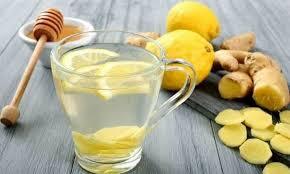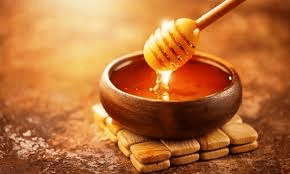Table of Contents
Keywords: Benefits of honey, uses of honey, medicinal honey, daily uses of honey, honey for health, healing properties of honey, honey in Islamic medicine, natural remedies with honey, ancient medicine honey, skincare with honey, energy booster, digestive health, honey for weight loss
Honey — often called “liquid gold” — is not just a delicious treat from nature, but a healing elixir that has served humanity for thousands of years. Produced by tireless honeybees from the nectar of flowers, this golden substance has been used across civilizations for nutrition, medicine, beauty, and spiritual health. From ancient Egypt and Greece to Islamic medicine and modern science, honey remains a valuable treasure for our daily well-being.
Daily Life Uses of Honey

1. Natural Sweetener
Honey is a natural alternative to processed sugar. It adds flavor and sweetness to drinks like tea and coffee, and enhances recipes from baked goods to salad dressings. Compared to refined sugar, honey contains enzymes, vitamins, minerals, and antioxidants, making it a more nutritious choice.
2. Instant Energy Source
Honey is rich in natural sugars (glucose and fructose) which are quickly absorbed by the body, providing an immediate energy boost. Athletes, students, and those with active lifestyles can benefit greatly by consuming a spoonful of honey before or after physical exertion.
3. Weight Management Aid
Drinking warm water with honey and lemon early in the morning is a widely trusted home remedy to aid digestion and metabolism, which supports weight management. Its role in gently detoxifying the body is appreciated in both ancient and modern wellness systems.
7+ proven health benefits of desi ghee
4. Natural Skin Care Remedy
Honey has antibacterial and anti-inflammatory properties that make it an ideal skincare ingredient. It is used to treat acne, dry skin, dullness, and irritation. Whether applied as a face mask or added to scrubs, honey offers radiant, nourished skin.
5. Food Preservative & Cooking Ingredient
Due to its antimicrobial nature, honey acts as a natural preservative. It’s also a key ingredient in marinades, dressings, and traditional sweets — adding both flavor and health benefits.
Medicinal Uses of Honey Since Ancient Times
1. Wound Healing
In ancient Egypt and during medieval Islamic times, honey was applied directly to burns, wounds, and cuts. Its antiseptic nature helps fight bacteria, reduces inflammation, and promotes tissue regeneration. Today, Manuka honey is widely used in modern wound care.
2. Cough and Throat Relief
Honey is among the oldest and most trusted home remedies for coughs and sore throats. It coats the throat, soothes irritation, and helps kill bacteria. Even studies by the World Health Organization (WHO) recommend honey for treating mild respiratory infections — especially in children.
3. Digestive Support
Traditional medicines used honey to treat conditions like gastric ulcers, indigestion, and stomach infections. It supports the growth of good gut bacteria, eases bowel movements, and promotes a healthy digestive tract.
4. Strengthens the Immune System
With its abundance of antioxidants, vitamins, enzymes, and minerals, honey supports the immune system naturally. Regular use may help prevent colds, infections, and seasonal illnesses by boosting the body’s defense mechanisms.
Buy Big Bee Honey At a Cheap Price
5. Reduces Inflammation and Oxidative Stress
Honey contains polyphenols and flavonoids, which are powerful plant compounds that reduce inflammation and oxidative stress — two of the primary contributors to aging, heart disease, and chronic illness.
Honey in Traditional and Ancient Medicine
1. Honey in Islamic Medicine
Honey holds a special status in Islamic healing traditions. The Qur’an explicitly refers to honey as a remedy for mankind:
“There comes forth from their bellies a drink of varying color wherein is healing for men.”
(Surah An-Nahl, 16:69)
The Prophet Muhammad ﷺ recommended honey for various ailments including stomach pain, and encouraged its use as a spiritual and physical healing agent. Many authentic Hadiths highlight honey’s role as a natural cure, placing it among the greatest blessings of nature.
2. Honey in Ayurveda
In Ayurveda, honey is known as “Madhu” and used as both a medicine and a carrier (yogavahi) for herbs. It balances the body’s three doshas—Vata, Pitta, and Kapha—making it highly versatile. Honey is used for treating cough, wounds, eye conditions, insomnia, and digestive disorders in this ancient medical system.
3. Honey in Unani and Chinese Medicine
In Unani medicine, honey is known to strengthen the liver, improve respiratory health, and aid reproductive vitality. It is used as a mild laxative, antiseptic, and general tonic. Traditional Chinese medicine regards honey as a harmonizer that helps with dryness, pain relief, and detoxification.
Other Remarkable Benefits of Honey
➤ For Mental Clarity and Brain Health:
Raw honey is said to enhance memory, concentration, and mental sharpness. Its natural sugars support brain function, making it a useful food for students, elderly individuals, and those with cognitive challenges.
➤ For Children’s Health:
In moderate amounts, honey strengthens a child’s digestive system, boosts immunity, and provides essential nutrients. However, honey should not be given to infants under 1 year due to the risk of botulism.
➤ For Hair and Scalp:
Honey’s hydrating and antifungal properties make it useful in hair masks and shampoos. It promotes hair growth, removes dandruff, and adds shine and softness to hair naturally.
➤ For Oral Health:
Honey has been used traditionally to treat mouth ulcers, gum infections, and bad breath. Its antibacterial effect helps maintain oral hygiene and fresh breath.
Scientific Research on Honey
Modern science continues to validate honey’s traditional uses:
- Antibacterial and Antifungal Properties: Honey inhibits the growth of harmful bacteria like E. coli and Staphylococcus aureus.Refrences
- Wound Healing: Manuka honey has been shown to accelerate wound healing and reduce infection in clinical settings.Refrences
- Antioxidant Power: Honey contains flavonoids and phenolic acids that combat oxidative stress, a key factor in aging and chronic diseases.Refrences
- Diabetes Management: While honey should be used cautiously by diabetics, some studies suggest it may improve lipid profiles and reduce inflammation when used in moderation.Refrences
Frequently Asked Questions (FAQs)
Q1: Can honey be used daily?
Yes, honey can be consumed daily in moderation. One to two teaspoons a day can offer health benefits without excessive sugar intake.
Q2: Is raw honey better than processed honey?
Raw honey retains more enzymes, antioxidants, and nutrients compared to processed honey, which is often heated and filtered.
Q3: Can diabetics consume honey?
Diabetics should consult their doctor before using honey. In small amounts, it may be safer than refined sugar, but it still affects blood sugar levels.
Q4: Is honey safe for children?
Honey is safe for children over one year old. It should not be given to infants under 12 months due to the risk of botulism.
Q5: How should honey be stored?
Store honey in a cool, dry place in a tightly sealed container. It does not spoil easily due to its low moisture content and natural preservatives. Science has validated many of the traditional claims about honey. Research published in journals such as the Journal of Medicinal Food and National Center for Biotechnology Information (NCBI) supports honey’s:
- Antibacterial and antifungal effects
- Wound healing ability
- Role in diabetes management (when used cautiously)
- Potential for heart health improvement
Final Thoughts
Honey is more than just a food — it is a time-tested, all-natural medicine, revered in every ancient system and supported by modern science. It offers benefits for nearly every aspect of health — from boosting immunity to treating infections, aiding digestion, and enhancing beauty.
Whether you’re looking to improve your daily wellness, manage health conditions, or simply adopt more natural remedies, honey is a powerful, affordable, and accessible solution. Let it be part of your kitchen, your medicine cabinet, and your daily life.





